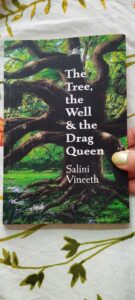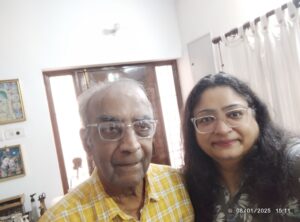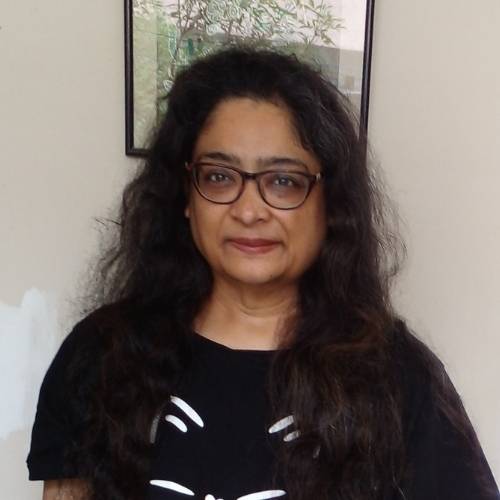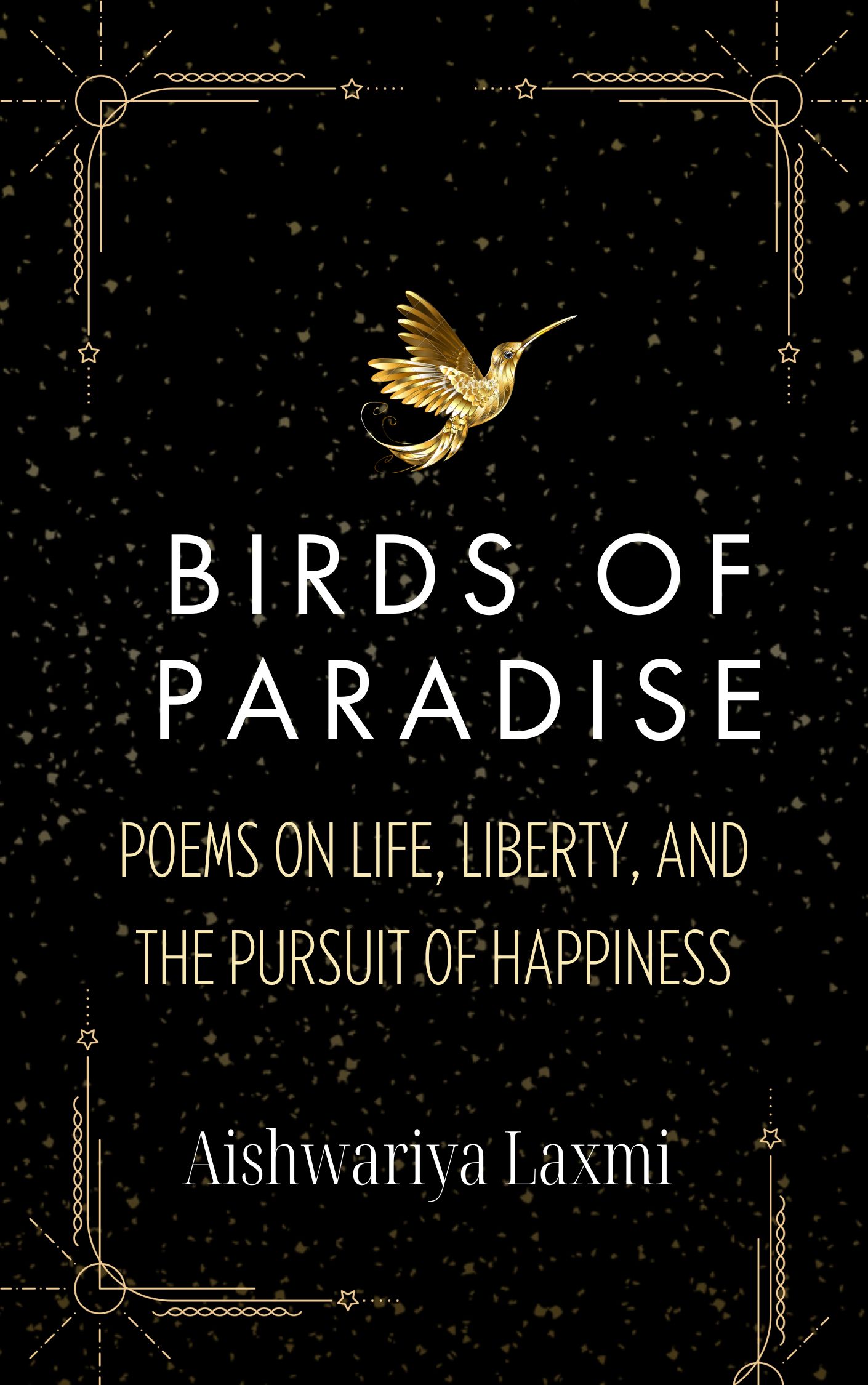BIRDS OF PARADISE, Poems on Life, Liberty, and the Pursuit of Happiness, by Aishwariya Laxmi, Published by Alien Buddha Press, 2024
Review by Candice Louisa Daquin, Senior Editor, Indie Blu(e) Publishing / Raw Earth Ink.
In Birds of Paradise, Aishwariya Laxmi’s piercing poetic gaze, flies above her and exists like a recorder of all. This lends the reader an amuse-bouche by way of poetry and access to Laxmi’s candid experiences. Poets can hide behind poetry, or come flaming through it. Laxmi’s writing is brave, real and shimmering, in her dedication to revealing truth and engendering hope. Her only-child self runs through the corridors of this collection like a jinn, capable of evoking the very center of the poet’s soul. Like Laxmi, I grew up an only-child reading The Magic Faraway Tree in translation, and that beloved kindling of imagination has bequeathed Laxmi with an enduring ability to transform any experience into poetry, as she says, for a beautiful journey.
When you are lost in memories
I go to you like a dancing star
Let the world say everything is bleak
I would bring you sunshine if you were sad (You and I).
Debut books often speak to the author most poignantly, for they contain the rapture of first writing in its unvarnished purest form. When Laxmi talks of recapturing innocence, she permits her readers into an inner sanctum that has not been pierced by life’s grief, and remains inviolate and holy. This surely is why poetry retains its addictive heart. Laxmi’s memories are so redolent and beloved, they become films in our minds-eye, walking with her, through the kaleidoscope of her life thus far.
And then you’re whole again
Not because you needed another to complete you
But you learned how to be complete
Within the boundaries
Of your body and soul (Mending a Broken Heart). ( Contd. after image)

There is no one theme, nor singular direction, but the rambling unfurling of a well lived existence and all the delights and sorrows we pick up along the way. This kind of pure poetry is a joy and creates liminal spaces for our pleasure, much like a palace with many rooms to visit. One could argue, if you wish to understand humanity, read poetry like this; for all human considerations exist together, from celebration, to growing-pains, lost love and overcoming fear. Even when the poet says; “For life can be a mirage / And something one reaches for / Can suddenly vanish” she doesn’t let herself fall into permanent despair, so much as acknowledge the rollercoaster emotional landscape of existence. The ultimate positive message remains, life can be filled with birds of paradise if we choose.
Indifference is what kills life
Not hate. For hate means there’s still a spark. (Love, Life and Indifference).
The simplicity of these reflections belies a deeper understanding of the machinations of society and people, alongside a longing to return to the beauty of simple pleasures of childhood. When the poet states; “But wasn’t it said that / It’s darkest before dawn?” she turns the philosopher into a seeker, of ways to reframe the pains of life, into determining ways of healing and growing. As Laxmi traverses her memory palace, she shares the longing through lovely word-play, understanding the fickle chase of joy against the unknown of connection. As she gathers her poetic skirts, her determination rouses with lines like: “Let every cell inside me find its path / And move slowly, surely toward this world.” That singularity is evoked repeatedly, almost mantra-like, becoming lyric in its acute realizing we are capable of growing beyond some of our worst moments into the light again.
My splintered mind haunts the night
The part of me that seeks you
Meets the part of me that doesn’t (Interconnectedness).
Even in the acknowledgement of sorrow there is belief in something better and it is this persisting endeavor that furnishes Birds of Paradise with a lovely hopefulness and appreciation of living; one we can all relate to, and gather strength from. Even when on the surface, there appears a sorrow, it is transformed again-and-again into something sustaining and whole.
I quit smoking because after I met you,
I didn’t feel the need
To swallow my feelings whole and
Let them suffocate me in loneliness (Ashes to Ashes).
Poetry doesn’t have to be hopeful and forward-facing, but when it is, it permits the reader a reprieve from the agonies of the every day and breathes a warm longing for a future, built on the foundations of that little girl who dreamed of magical places and refused to let those dreams die.
That shared smile
Of understanding and togetherness
Of dreams, we spun
Out of the silver cobwebs of our minds
Of lives entwined
By a single purpose (Uncertainty).











